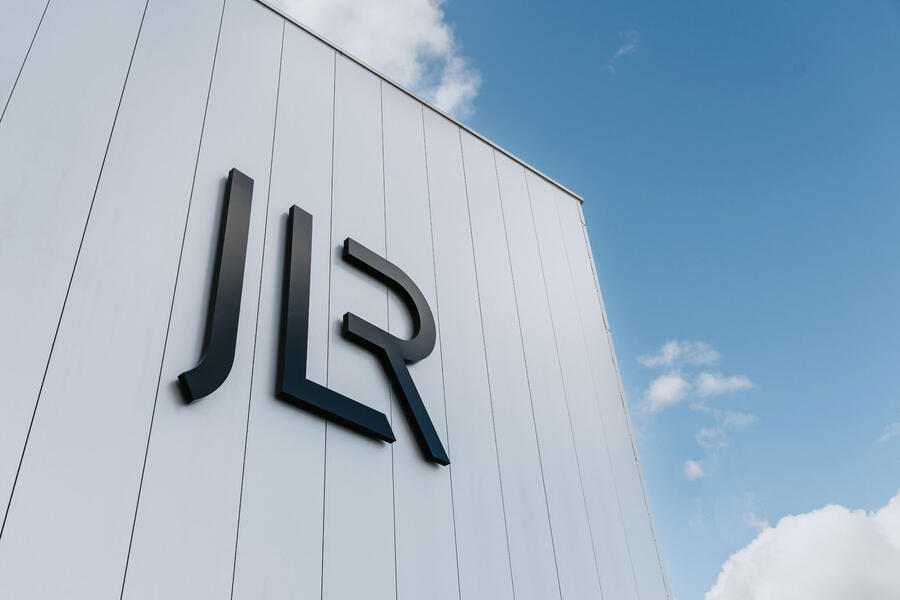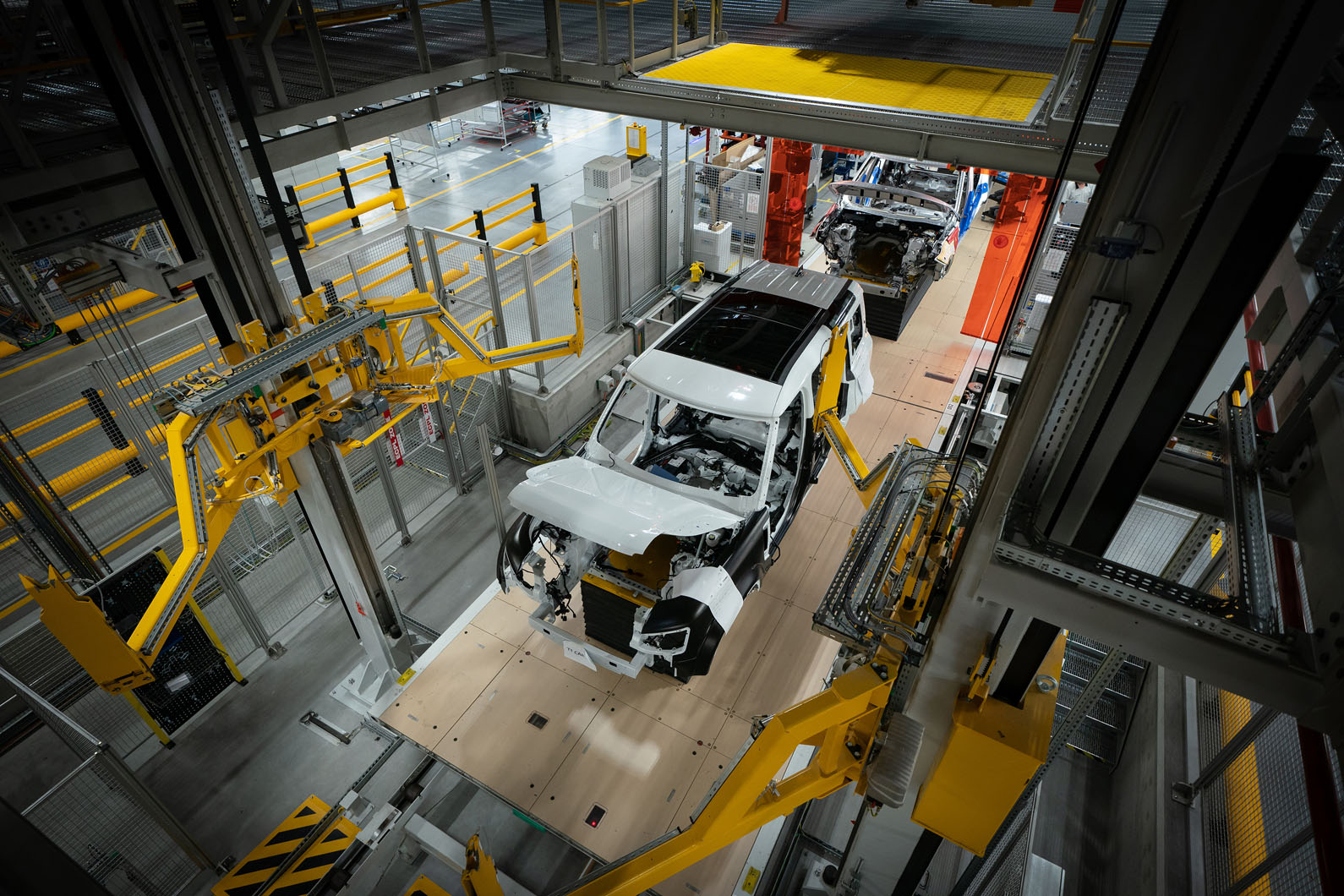The UK government could buy parts for JLR in an effort to keep suppliers afloat after the car maker was forced to stop production following a cyber attack on 1 September.
The suggestion has come as ministers weigh up whether and how to support the Land Rover maker after it extended its global production pause by a week to 1 October.
The main stumbling block for the idea is logistical, in that the bought parts would need to be stored somewhere, reports the BBC.
As such, other ideas are also being floated, such as government-backed loans to suppliers. However, this isn’t considered a viable option by those in need of support.
Concerns from suppliers – some of which are thought to be close to bankruptcy – will be heard by the Business and Trade Select Committee this afternoon. The government will then use these findings to make a decision.
Speaking on Tuesday at JLR’s roof supplier, Webasto, business secretary Chris McDonald told the BBC it was “really important that we don’t impose solutions on businesses but that we work with them”.
On 23 September, JLR extended its vehicle production pause by another week.
The company had planned to restart production at its UK and Slovakia factories on 24 September but delayed the restart as part of a plan to resume operations “in a safe and secure manner”.
The move means JLR will lose a full month of vehicle production, having not produced any vehicles since shutting down all its global systems in response to the attack on 1 September.
The impact on volumes will be made clear when the company releases its production numbers for the quarter, but in the three months to the end of September last year, it produced more than 80,000 cars.
In a statement sent to Autocar, a JLR spokesperson said: “We have made this decision to give clarity for the coming week as we build the timeline for the phased restart of our operations and continue our investigation.
“Our teams continue to work around the clock alongside cybersecurity specialists, the NCSC [National Cyber Security Centre] and law enforcement to ensure we restart in a safe and secure manner.
“Our focus remains on supporting our customers, suppliers, colleagues and our retailers, who remain open. We fully recognise this is a difficult time for all connected with JLR and we thank everyone for their continued support and patience.”
View all car reviews
The delay comes after the UK government stepped in to help JLR resume operations following the cyber attack.
JLR said this was “an important move to further identify the challenges businesses are facing following the recent cyber incident at JLR”.
The hack on 1 September has left JLR incapacitated. It has led to production shutdowns at all of JLR’s global plants, created issues with parts ordering and stifled retailers.
The effect could be costing JLR up to £5 million a day, business economics professor David Bailey has told Autocar.
Since the cyber attack, the majority of JLR’s employees have been off work, with lost hours being banked.
Union Unite said last week that employees within the supply chain are being told to apply for Universal Credit as they are moved onto reduced or zero-hours contracts by employers battling to stay afloat.
Earlier reports suggested that some suppliers “will go bust” as a result of the ongoing issues at JLR.
Unite general secretary Sharon Graham said the union has written to the UK government demanding it set up a furlough scheme to take the pressure off suppliers by supplementing workers’ pay packets while they’re unable to do their jobs.
“Workers in the JLR supply chain must not be made to pay the price for the cyber attack,” said Graham. “It is the government’s responsibility to protect jobs and industries that are a vital part of the economy.”
Graham cited a similar scheme set up on 15 September by the Scottish government to support bus maker Alexander Dennis and said “a similar scheme for workers in the JLR supply chain [should be set up] now”.
Autocar first reported issues affecting JLR on 1 September, when dealers couldn’t register new cars on ‘new plate day’ , traditionally one of the year’s busiest for registrations.
In an effort to combat the hack, JLR began “shutting down our systems” on 2 September.
It’s still in the process of rebuilding them and is unabel to confirm a timescale for the fix.
The hack has left JLR incapacitated. No cars have been produced globally since, leading to millions of pounds of lost income.
The extent of the issues meant JLR brought police and cybersecurity experts in to “restart our global applications in a controlled and safe manner”.
During this process, which included an investigation, it was discovered that “some data” was “affected”, said JLR. Those affected will be contacted, said the firm.
It’s not officially known what data was taken or if a ransom demand has been made, but it is thought it most likely involves customer data given the involvement of the police.
JLR said in a statement on 15 September that it will look to restart production on 24 September.
On 3 September, a group of hackers calling themselves Scattered Lapsus$ Hunters claimed responsibility for the attack on JLR.
This is the same group that hacked Marks & Spencer in May, causing the British retailer seven weeks of disruption and costing £300 million in lost operating profit.
It claimed to have obtained customer data after exploiting a similar flaw in JLR’s IT system. The claim was made on a Telegram messenger group, where a user linked to the hackers posted a screenshot of what appeared to show JLR’s internal system.
A member of the group revealled that a well-known flaw in SAP Netweaver, third-party software used by JLR, was exploited to access the data.
The US’s Cybersecurity and Infrastructure Security Agency warned about the flaw earlier this year. An update for the software was released, but whether JLR applied it is unknown.
It’s also not known what data was taken or if a ransom demand has been made of JLR.
Join our WhatsApp community and be the first to read about the latest news and reviews wowing the car world. Our community is the best, easiest and most direct place to tap into the minds of Autocar, and if you join you’ll also be treated to unique WhatsApp content. You can leave at any time after joining – check our full privacy policy here.
Will is Autocar’s news editor. His focus is on setting Autocar’s news agenda, interviewing top executives, reporting from car launches, and unearthing exclusives.
As part of his role, he also manages Autocar Business – the brand’s B2B platform – and Haymarket’s aftermarket publication CAT.
JLR reportedly had nominates ce coverage against a cyber attack AND they may a £2.2billion profit last year. As a taxpayer we should NOT be funding their mess.
NO INSURANCE COVERAGE
Perhaps they should just let JLR die and close down instead of suggesting that my taxes fund a producer of Co2 emissions, the same emissions taxation that they have been clobbering motorists with, and let the employees find something else to do that’s better for the environment.
Do you want your taxes spent trying to save jobs or spent on the resultant unemployed. And on top of those job losses, last year JLR made a pre-tax profit of £2.5 billion. So you’re loosing those taxes on profit too.
Don’t you agree funding the suppliers in the short term, ( i.e. as a sort of loan ) and then recouping the monies when the business resumes would be much better for our economy?
Maybe you just all suggest we go and live in a cave and actually stop living.
From 1 October the market will be flooded by thr good old unreliable JLR cars. How happy we all are!!Seriously: The cheapest way to improve is adding just few Japanese QA engineers to the management. Sorry, Oxford and Cambridge graduates.
View all car reviews











